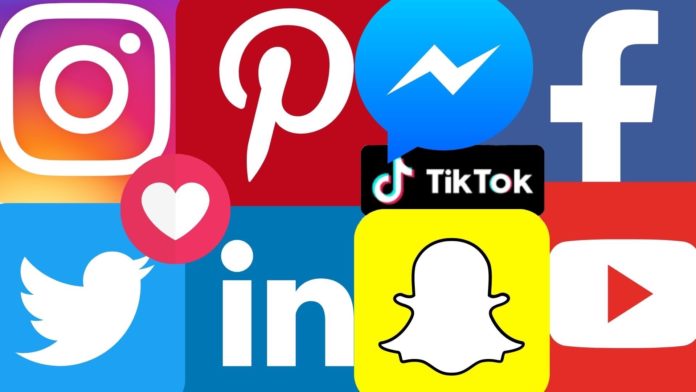By Lucy Ruscitto | Staff Writer
With nothing to do except endlessly Instagram surf, get lost in the TikTok-sphere or find a new favorite YouTuber, the months from March to present have been an odd, Internet-obsessed time for adults and students everyday.
According to Business Insider, before the COVID-19 breakout, the Harris Poll reported that 46% to 51% of adults in the United States used social media since the beginning of the pandemic. In another survey conducted from May 1 to May 3, “51% of total respondents … reported increased usage on certain social media platforms.”
Orange County, Calif., sophomore Chad Carter said he definitely has evolved a habit of increased social media use since the outbreak of the coronavirus,
“At the beginning of the outbreak, and while we began to quarantine, my time on social media rose to an all time high. It seemed to be the best way to stay connected and preserve relationships while physically away from everyone else,” Carter said. “Honestly, it also was just something to do with all the time we had.”
Luckily, Carter said he was able to distract himself from the pandemic by upping his social media game.
“I took this as an opportunity to cover my social media platforms with creative and what I thought was comedic content that I thought was important in this climate where a lot of serious issues are pressed on through social media,” Carter said. “This type of material, I feel, is what I have grown to be drawn to since COVID started.”
While some social media postings during the last months have been entertaining, according to Erin McGinty Fort, coordinator of eating disorder services and senior staff clinician at the Baylor University Counseling Center, not all increased social media activity related to the pandemic is particularly advisable.
“We have primarily been dependent upon the media for information related to the virus. Depending upon what news sources you follow, there can be conflicting messages related the virus in terms of how it spreads, what precautions we should take, mortality rates, and how long we can expect the virus to be around,” McGinty Fort said. “Media can leave people feeling confused, and conflicted about what information to act on. In addition to that, we’re all subject to opinions that our friends and family express about the virus on social media. It can add to the sense of insecurity and uncertainty we already feel.”
In an interview on WBFO, Dr. Roger McIntyre, a professor of psychiatry and pharmacology at the University of Toronto and CEO of AltMed Capital, performed a study in April in which he studied healthcare workers in China.
The point of this study was to observe how social media usage during the pandemic contributed “to a worsened mental health state.”
“Prior to COVID-19 and during much of the past decade, there’s a replicated body of scientific literature indicating that social media consumption from people who are using it many hours a day, many days a week are more likely to report negative health outcomes. That is they’re more likely to report decreased well being,” McIntyre said. “There is something about excessive consumption of social media that does not appear to be helpful. It appears to be harmful for you. And we conjecture that is in part because of the contagion, not just of the virus app, but the fear contagion, which only amplifies many social media platforms.”
Not only can conflicting information on social media dishearten and confuse users of its platforms, but also induce an experience of FOMO— or, the fear of missing out, for those either in quarantine or following strict social distancing policies for themselves.
“Students, of course, don’t want to feel left out. First-year and transfer students are looking to make social connections, and upperclassmen want to continue to build upon the friendships they already have,” McGinty Fort said. “So everyone is trying to balance being safe and responsible with the fear of missing out on opportunities to socialize.”
Carter said he has personally experienced this conflicting emotion of feeling excluded.
“I was quarantined for a couple weeks just recently and since social media presents this image of everyone at their best, experiencing friends and classes at a more personal level, it was easy to be jealous of others and to feel like I’m missing out,” Carter said.
Like Carter, McGinty Fort said social media does have the potential be used for good, but still has the power to negatively affect students’ mental health. She said she suggests students assess how their social media utilization is influencing them.
“Social media can be a positive thing or a hard thing during times like these. It’s helpful to evaluate who you follow and how those accounts make you feel. Do they add value to your life, or do they cause you to feel anxious or insecure?” McGinty Fort said. “Students might consider unfollowing accounts that are bringing them down. It’s also good to take breaks from social media, and reach out to real-life people versus social media if you’re struggling.”
Carter’s advice for students to decrease the stress that comes with social media during the pandemic is to casualize one’s social media postings and consumption.
“Don’t take social media so seriously,” Carter said. “Post something you think is funny like a couple times a week. That’s what I do at least.”






